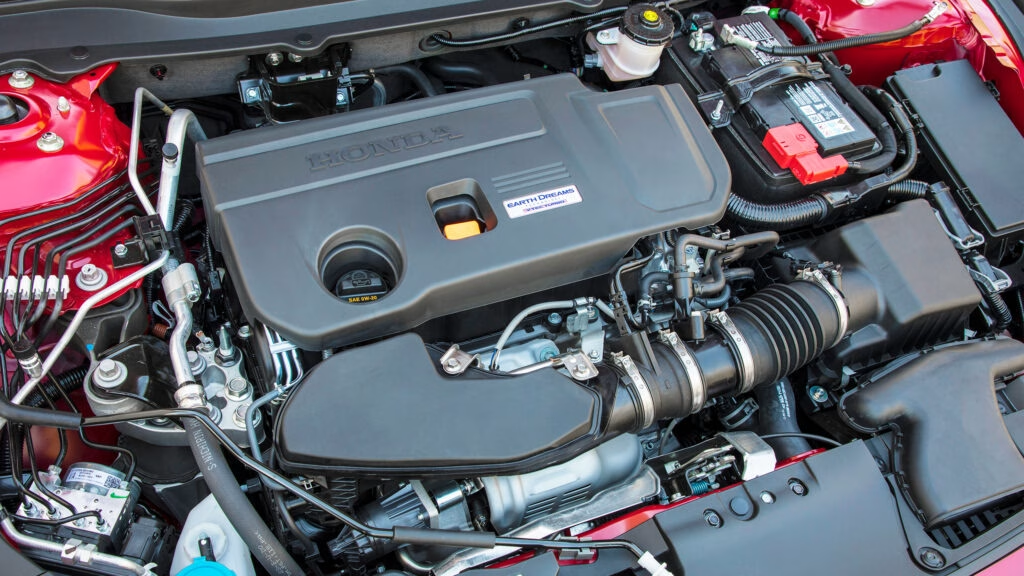Are Honda’s Four-Cylinder Engines Really Failing Earlier Than Expected?
If you own a late-model Honda or Acura, you might’ve heard the buzz: a class action lawsuit is putting the spotlight on Honda’s 1.5- and 2.0-liter four-cylinder engines. For years, Honda has been the gold standard for reliability, but this new legal challenge is raising some tough questions. What’s really going on under the hood, and should you be worried?
What’s the Real Issue With Honda’s Head Gaskets?
Let’s cut to the chase. The lawsuit claims that head gaskets in certain Honda engines are prone to cracking. When that happens, coolant can leak into the cylinder head’s grooves. Not a minor leak, either—this can cause the engine to overheat, seize up, or, in rare cases, even catch fire. The telltale sign? White smoke billowing from the exhaust, which usually means coolant is burning off in the combustion chamber.
But there’s more. If coolant mixes with engine oil, it can corrode internal parts, leading to major engine damage. This isn’t just a theoretical risk—owners have reported these symptoms, and the lawsuit alleges Honda has refused to repair or replace the affected engines, even when they’re still under warranty.
Which Models Are Affected by These Engine Problems?
The lawsuit specifically names five models: the 2018-2022 Honda Accord, 2016-2022 Honda Civic, 2017-2022 Honda CR-V, 2021-2022 Acura RDX, and 2019-2022 Acura TLX. Most of the plaintiffs own 2018 or 2019 Accord models, but the issue appears broader than just one year or trim.
If you drive one of these vehicles, it’s worth keeping an eye out for symptoms like unexplained coolant loss, overheating, or that dreaded white smoke. Even if your car seems fine now, the complaint suggests these issues can develop over time—sometimes well before the 200,000-mile mark that many Honda owners expect from their engines.
Why Are Owners So Upset—and What’s Honda’s Response?
Honda drivers have long expected their engines to last for decades, not just years. According to the class action, the engines in question are falling short of this standard, with some failing far earlier than expected. The plaintiffs accuse Honda of breaching warranty, unjust enrichment, and violating consumer protection laws. They’re seeking damages, legal fees, and a jury trial.
What’s especially frustrating for owners is the alleged refusal by Honda to address the problem, even for cars still under warranty. That’s a big deal—warranty coverage is supposed to be a safety net for exactly these kinds of defects.
Is This a New Problem for Honda?
Interestingly, this isn’t the first time Honda’s 1.5-liter i-VTEC engines have come under legal scrutiny. A separate lawsuit in California in late 2024 alleged similar issues: poor sealing and cooling, coolant leaks, oil contamination, and overheating. While Honda has previously settled other class actions (including a notable case involving start-stop systems), this latest lawsuit suggests the engine reliability debate is far from over.
What Should Honda and Acura Owners Do Right Now?
If you own one of the affected models, don’t panic—but don’t ignore potential warning signs, either. Regularly check your coolant and oil levels. Watch for white smoke or unexplained overheating. If you notice anything unusual, document it and contact your dealer immediately. Even if your warranty has expired, keeping detailed records can help if you need to join a class action or seek reimbursement later.
It’s also smart to stay informed. The National Highway Traffic Safety Administration (NHTSA) maintains a database of recalls and technical service bulletins. Checking your vehicle’s VIN can reveal if there are any open recalls or service campaigns related to your engine.
How Common Are Head Gasket Failures in Modern Engines?
While head gasket failures aren’t unheard of, they’re relatively rare in modern engines—especially from brands like Honda, which typically rank near the top for reliability. According to a 2023 study by Consumer Reports, Honda and Acura vehicles generally have lower-than-average rates of major engine repairs. That’s what makes these recent complaints stand out.
Still, even the best manufacturers can have a bad batch or a design flaw slip through. The key is how they respond. Industry experts say that proactive recalls and transparent communication go a long way toward maintaining trust.
What Does This Mean for Honda’s Reputation?
Honda’s reputation for bulletproof engines didn’t happen by accident—it’s been earned over decades. But as vehicles become more complex, even established automakers face new challenges. Turbocharging, direct injection, and tighter emissions standards all put extra stress on engine components. Sometimes, that means a design that looks great on paper doesn’t hold up as well in the real world.
The big takeaway? Engine reliability isn’t about perfection—it’s about smarter adjustments. Start with one change this week, and you’ll likely spot the difference by month’s end. Whether that’s checking your fluids more often, keeping better records, or simply staying informed, a little extra vigilance can make all the difference in keeping your Honda running strong.

